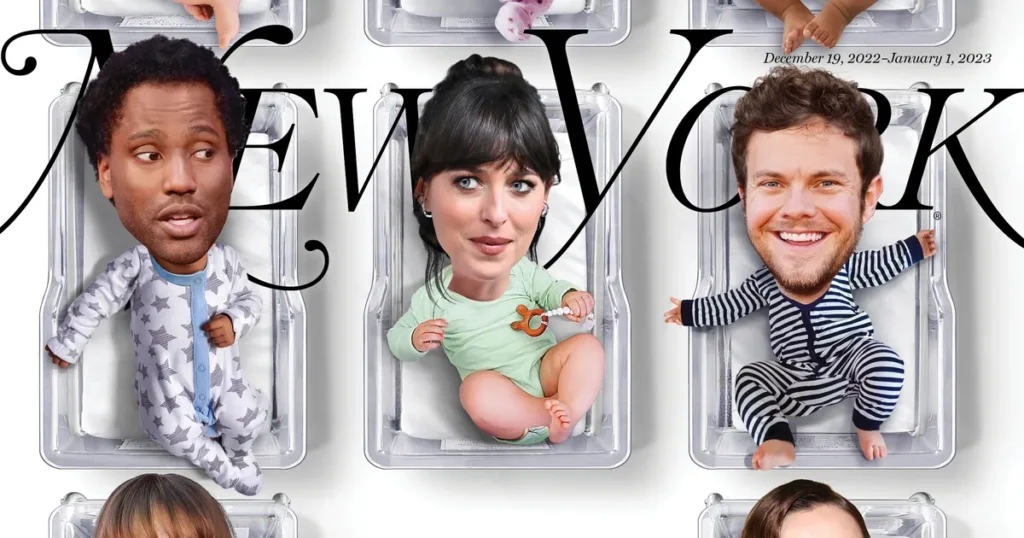In the glitzy world of Hollywood, where last names often carry as much weight as talent, the term “Nepo Babies” has become a buzzword. From red carpets to casting rooms, these second-generation celebrities—children of famous parents—are everywhere. But the question remains: are they riding the wave of inherited privilege, or are they carving out careers worth celebrating?
As we dissect the phenomenon of nepo babies, this post explores their influence, the controversy around their rise, and what their careers truly say about the state of meritocracy in entertainment.
Who Are the Nepo Babies of Hollywood?

The phrase “nepo baby” is shorthand for “nepotism baby”—someone who gains fame or professional advantage due to familial connections. While nepotism is hardly new in any industry, Hollywood’s visibility makes it particularly easy to spot.
Here are a few of the most talked-about nepo babies:
- Lily-Rose Depp (daughter of Johnny Depp and Vanessa Paradis): She’s walked Chanel runways and starred in The Idol.
- Maya Hawke (daughter of Ethan Hawke and Uma Thurman): She gained recognition with Stranger Things and Do Revenge.
- Brooklyn Beckham (son of David and Victoria Beckham): From photography to cooking, Brooklyn has tried various creative ventures.
- Zoë Kravitz (daughter of Lenny Kravitz and Lisa Bonet): A respected actress, director, and fashion icon.
- Jaden and Willow Smith (children of Will and Jada Pinkett Smith): Multi-hyphenate creatives with music, acting, and fashion endeavors.
Despite their differences in talent and career trajectories, they all share one thing: access to networks and opportunities that most aspiring artists can only dream of.
The Rise of the “Nepo Baby” Backlash

The backlash began as audiences began to question: Is success truly earned if you were born into fame?
When New York Magazine’s December 2022 cover boldly labeled a collage of celebrities as “nepo babies,” it sparked both outrage and introspection within Hollywood. Many celebrities reacted defensively. Lily-Rose Depp dismissed the label, saying, “If somebody’s mom or dad is a doctor, then the kid becomes a doctor, and no one’s like, ‘You’re only a doctor because your parent is a doctor.’”
But critics argue that the entertainment industry is different—because it’s built on visibility, media access, and cultural influence. For young artists, connections can determine everything from auditions to press coverage.
Nepotism or Talent? Let’s Look at the Numbers

It’s not enough to say someone is “famous because of their parents.” Many nepo babies actually do work hard. But their career paths tend to be faster, more forgiving, and better resourced.
Consider This:
- The average actor auditions for 30–50 roles before booking a single job. Many nepo babies are cast in major roles within their first year.
- PR and stylists that cost thousands a month are often gifted to them from family connections.
- Brand deals and magazine covers are offered early—even before any major work—because of their last names.
Does this mean they’re untalented? No. But it does mean the playing field isn’t level.
Spotlight: The Dual Identity of Nepo Babies
When Career Meets Clout
This is where the line between merit and privilege gets blurry. Some nepo babies have proven themselves, building respected careers. Others benefit mostly from inherited clout.
Let’s break this down:
Nepo Babies Who Proved Their Craft:
- Zoë Kravitz – From Big Little Lies to The Batman, her performances show emotional depth and stylistic nuance.
- Maya Hawke – Critics have praised her charisma and ability to connect on-screen, particularly in ensemble casts.
Nepo Babies Who Struggle With Identity:
- Brooklyn Beckham – While he’s pursued photography and cooking, public reception suggests his fame often overshadows his output.
- Lily-Rose Depp – Though a fashion darling, acting critiques have been mixed, with some questioning the depth of her roles.
In both cases, fame gives them opportunities—but it doesn’t guarantee public approval. In fact, fame sometimes becomes a burden they have to work twice as hard to justify.
Nepotism Beyond Acting: Music, Fashion, and More

Nepotism isn’t confined to film and TV. The children of musicians, designers, and models also rise fast in adjacent industries.
- Willow Smith transitioned from “Whip My Hair” to experimental R&B acclaim.
- Hailey Bieber (daughter of actor Stephen Baldwin) dominates the beauty world with Rhode Skin.
- Rainey Qualley, daughter of Andie MacDowell, is an indie music darling under the name Rainsford.
The entertainment ecosystem overlaps so heavily that name recognition can become a currency in itself. Brands, agents, and labels often invest in familiar surnames because they’re seen as “low risk” in a hyper-competitive market.
How Social Media Changed the Game for Nepo Babies
In the past, legacy families controlled their public image through traditional media. Now, social media gives nepo babies a direct line to fans—and critics.
Here’s how:
- Instagram followers = leverage with brands.
- TikTok views = record deals, modeling gigs, and casting interest.
- Twitter callouts = public accountability.
Some, like Iris Law and Kaia Gerber, use their platforms to showcase fashion and acting work. Others have faced backlash for tone-deaf content or flaunting privilege during sensitive times.
Do Nepo Babies Deserve the Hate?
Not necessarily. While it’s fair to critique the unfair advantages, not all nepo babies are guilty of entitlement. Some are self-aware, hardworking, and openly acknowledge their privilege.
And let’s not forget: nepotism isn’t exclusive to entertainment. It happens in law firms, universities, finance, and politics. The difference? We don’t watch those industries on movie screens or red carpets.
The bigger conversation is about opportunity equity and transparency. How can Hollywood open more doors for talent without lineage? How can new voices rise in an industry so obsessed with bloodlines?
Conclusion: Clout Will Get You In, But Talent Keeps You There
Whether you love them or love to hate them, nepo babies aren’t going anywhere. Their real impact is twofold: they reflect the inequality embedded in Hollywood—and challenge us to rethink what success really looks like.
Some will fade. Some will flourish. But all of them are redefining fame in the age of scrutiny and social accountability.
Maybe the question isn’t whether nepo babies deserve their place—but whether Hollywood is willing to let new, unaffiliated stars take theirs too.
